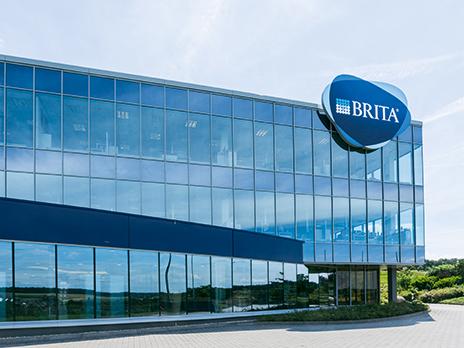In fact, a significant 92% of hospitality businesses agree they are expected to set targets around sustainability and carbon reduction, but just one third (37%) currently have targets in place.
BRITA Professional has teamed up with a strong collective of sustainability experts who have done the thinking for you – we’ve distilled three bitesize pieces of advice that will help you turn your sustainability ambitions into a reality in 2022.
Kicking things off with Henry Ayers, Director at Gentlemen Baristas, who shares his advice for operating sustainably and why it makes a difference. He says the first step is to consider your team…
There’s nothing sustainable about unhappy staff:
“One phrase that came out of lockdown that stuck with me is: “It’s okay not to be okay,” relating to the negative mental impact staff shortages has had on the industry. Operating with staff shortages is unsustainable and will lead to burn out and poor service. To tackle this, more establishments are closing on a Monday or reducing service, such as limiting the menu throughout the week.
“During the lockdown we ran campaign with The Burnt Chef project, highlighting mental wellbeing in hospitality to encourage people to reach out and talk. We raised over £7k with manufacturing partners. On top of this, we have a mental health policy and are running workshops to spot signs of burnout and how to deal with it.”
Next up, we have Andrew Stephen from the Zero Carbon Forum, former CEO of The Sustainable Restaurant Association and co-author of the ‘Food that doesn’t cost the earth’ report.
Prioritise smart energy usage:
“On average, £25,000 per site per year is wasted on the cost of overnight energy usage. This just goes to show the importance of switching off all equipment that doesn’t need to be left on overnight. The same is true for powering on, if cafés can work smart and only fire up the equipment they need that day, there could be further opportunities to save energy and drive down costs.
“What’s more, evidence suggests that if you buy equipment that’s not A-Rated energy efficient then it’s a false economy and over its lifetime it will end up costing you more. Rather than buying new equipment, businesses should ensure their equipment lasts as long as possible and runs as efficiently as it can. Preventative maintenance and using the correct water filter to minimise limescale build-up is one way to achieve this.”
Work with suppliers to boost your own sustainability credentials:
Finally, Will Richardson and Alex Cronin from Green Element share their insight on the key questions café businesses should be asking their suppliers and themselves to enhance sustainability.
“Create efficiencies by working in greater partnership with your suppliers. Ask yourself: are your suppliers supporting your business to achieve your sustainability targets? Have your suppliers conducted a carbon footprint analysis? This is a crucial step to understanding whether they are working towards improving their own sustainable practices.
More specifically, can they help you to do things like condensing deliveries, to reduce the number of trips they’re taking? Or are they minimising the number of products they ship by air freight? These are the types of things that will make a significant difference to your sustainability mission.
In a nutshell, considering a wide range of elements – such as supporting the wellbeing of the team, monitoring your equipment usage and working more closely with suppliers – can all contribute towards boosting your businesses efficiency and creating a more sustainable future in 2022 and beyond.
Find out more about how BRITA Professional can support your sustainability goals. Visit Going Full Circle to download a copy of ‘Going Full Circle’ BRITA’s new sustainability magazine, exploring the challenges facing the hospitality industry and offering expert guidance to help organisations achieve their environmental targets.





